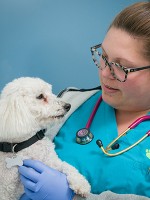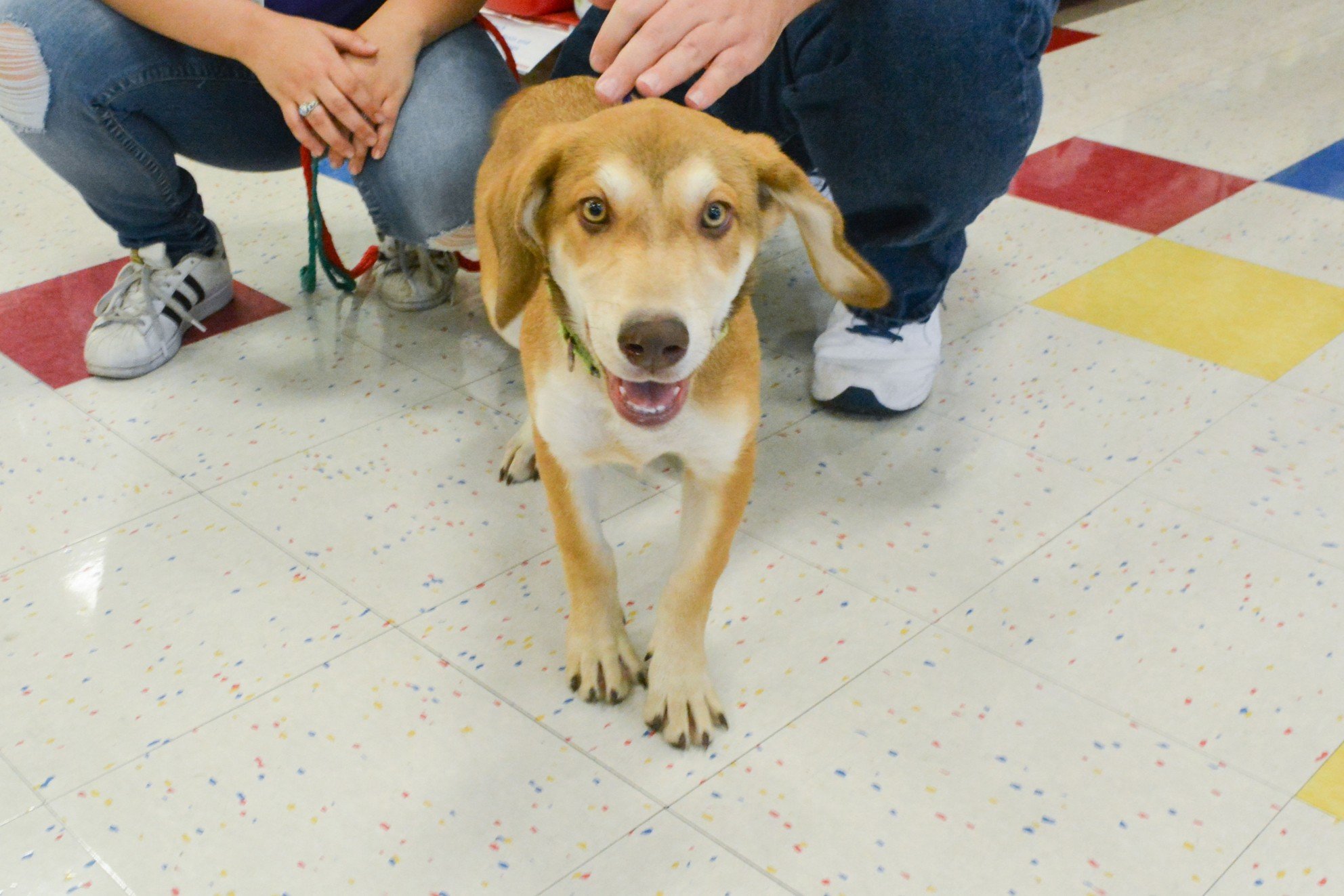 Proper Pet Health
Proper Pet Health
Proper pet health and care is an important part of responsible pet ownership. And yet some pet owners are unaware of or overlook these basics of good pet health.
It’s that time of year when people are excited about new beginnings and often make resolutions about improving their health and wellbeing. But what about our pets? They benefit from good habits as much as we do. Here are five steps you can take to keep your pet healthy year-round.
1. Make Preventative Pet Health Care a Priority
Whether it’s annual wellness vet visits or monthly heartworm, tick, and flea prevention, it's your responsibility as a good pet owner to stay up to date on the preventive care that helps keep your pet healthy. A healthy pet is a happy pet! Pet vaccines help protect your dog or cat from contagious diseases, many of which can cause serious illness or death. Vaccinations are important even if your pet is kept indoors as many contagious diseases are airborne or can live a long time. (The Animal Foundation is a good source for low-cost vaccinations.) Just like with people, “an ounce of prevention is worth a pound of cure” – and typically less expensive in the long run.
2. Spay or Neuter Your Pet
Another important part of preventative health care is getting your pet spayed or neutered. Spaying or neutering your dog or cat will help reduce their chances for certain types of cancer, as well as reduce or eliminate your male pet's urge to roam and mark. Spaying or neutering your pet is also required by law in Las Vegas, City of North Las Vegas, Clark County and City of Henderson to help prevent dog and cat overpopulation that leads to homelessness. If you are looking for low-cost spay and neuter services, The Animal Foundation has some of the lowest prices in the Las Vegas area.
3. Take Care of Your Pet’s Teeth
Just as with people, good oral and dental hygiene can help prevent bad breath, tooth decay and gum disease—and can help your pet keep his or her teeth as they get older. Often, a dog or a cat can have pain and problems, such as a cracked tooth in their mouth, while the owner is completely unaware, which is why annual dental check-ups and cleaning are so important. Choose treats and toys carefully – soft is better than hard. Remember, preventative dental treatment can stave off costly tooth extractions. Vets now recommend that you brush your pet’s teeth daily but even a bit of fluoride once a week can help. Also, there are prescription dental treats, such as OraVet, that can help if brushing is difficult.
4. Don’t Let Your Pet Get Overweight
According to the Association for Pet Obesity Prevention, 53% of adult dogs and 55% of cats in the US are obese or overweight. You may think your pet’s weight is fine but according to one study, 22% of dog owners and 15% of cat owners said their pet's weight was normal when, in fact, it was actually overweight or obese. If your pet is overweight or obese, it can cause arthritis, diabetes, high blood pressure, kidney disease, certain cancers, heart and respiratory disease, and other problems.
According to the Purina Lifespan Study, obesity takes almost two years off a dog's life. Table food is the No. 1 thing contributing to weight gain in most dogs, and a lot of health issues are associated with it -- from diarrhea to pancreatitis. Continuous feeding also contributes to pets being overweight, as does lack of exercise. Part of being a responsible pet owner is controlling what and how much your pet eats, and how much exercise they get.
5. Carve Out More Play Time for Your Pet
Don’t be too busy to take time out of your day to play! Play is important, not just for kittens and puppies, but also for adult cats and dogs. (And it can be a great stress-reliever for you!) Exercising your pet’s mind is just as important as keeping them physically fit. “Play” can be teaching your dog a new trick or something more structured, such as agility or obedience training. Put your pet’s problem-solving skills to work with a treat-dispensing toy or by making a game out of existing toys like hide and go seek. The more you play with your pet, the better both you and your pet will feel. For ideas on play time activities with your dog, check out The Animal Foundation's Guide to Your Dog's Play Time and Activities.
Remember, good pet health - both physical and mental – makes for a happy pet! Follow these 5 tips to keep your pet healthy for years to come.





